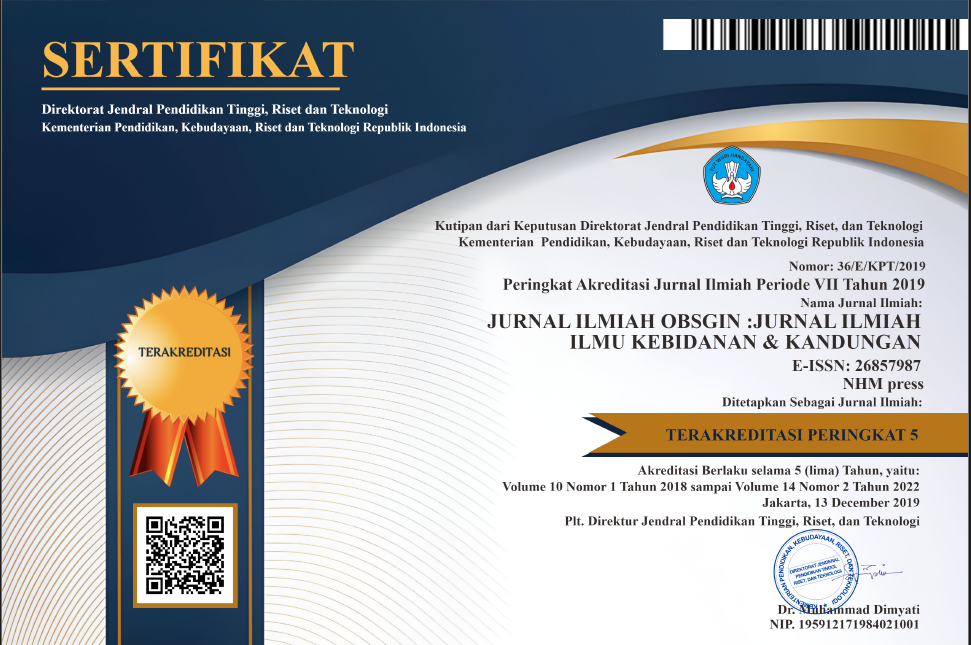ANALISIS PELAKSANAAN PROGRAM PENCEGAHAN DAN PENGENDALIAN INFEKSI HEALTH CARE ASSOCIATED INFECTIONS DI RUMAH SAKIT UMUM DAERAH KOTA KENDARI
Abstract
Health Care Associated Infections (HAIs) are infections caused by microorganisms and bacteria that are obtained when patients are treated 3x24 hours not only in hospitals but also in other health care facilities and are not limited to infections only in patients, but also infections in health workers who obtained at the time of performing patient care procedures. The purpose of this study was to analyze the implementation of the HAIs Infection Prevention and Control Program at the Kendari City Regional General Hospital (RSUD). This research is qualitative research. Sampling procedure using purposive sampling technique, data collection was carried out by in-depth interviews, observation and focus group discussions (FGD). Participants in this study consisted of 4 men and 2 women. Data was collected by means of in-depth interviews, observation and focus group discussions (FGD). The qualitative research instrument is the researcher himself. Data analysis, using Interpretative Phenomenological Analysis (IPA) according to (Smith, Flowers et al. 2009) which consists of Reading and re-reading, Initial noting, Developing themes, Searching for connection across emergent themes, Moving the next cases, Looking for patterns across cases, Taking Interpretations to Deeper levels. The validity of the data includes Credibility, Transferability, Dependability, Confirmability. The results of this study discuss the input process: Leadership, process components: Implementation of committee work programs and output An overview of the incidence of Health Care-Associated Infections (HAIs) at the Kendari City Hospital.
References
Haque, M., Sartelli, M., McKimm, J., & Bakar, M. A. (2018). Health care-associated infections–an overview. Infection and Drug Resistance, 11, 2321.
Herman, M. J., & Handayani, R. S. (2016). Sarana dan prasarana Rumah Sakit Pemerintah dalam upaya pencegahan dan pengendalian infeksi di Indonesia. Jurnal Kefarmasian Indonesia, 6(2), 137–146.
Kusnan, A., Binekada, I. M. C., Susanty, S., Hajri, W. S., Afrini, I. M., & Syam, Y. (2020). Safe injection practices and the incident of Needle Stick Injuries (NSIs). Enfermeria Clinica, 30, 73–76.
Menkes, R. I. (2017). Permenkes RI Nomor 27 tahun 2017 tentang Pedoman Pencegahan dan Pengendalian Infeksi di Fasilitas Pelayanan Kesehatan. Jakarta: Kemenkes.
Nasution, L. H. (2012). Infeksi nosokomial. Departemen Ilmu Kesehatan Kulit Dan Kelamin, 39, 39.
Rahmawati, R., & Kusnan, A. (2019). Relationship of Self-Efication and Organizational Culture with Nurse Behavior in the Implementation of Safe Injecting Practices in Kendari City Hospital. Jurnal Keperawatan, 10(2), 105–110.
Rangki, L., & Wati, R. (2018). Analisis Determinan Perilaku Perawat dalam Penerapan Praktek Menyuntik yang Aman Di RSUD Kota Kendari. Jurnal Aisyah: Jurnal Ilmu Kesehatan, 3(2), 163–172.
Rivai, V., & Mulyadi, D. (2010). Kepemimpinan & Perilaku Organisasi. Jakarta: Rajawali Pers.
RSU Kota Kendari: Bidang Perencanaan. (2017). Profil Rumah Sakit Kota Kendari.
Sagala, D. S. P. (2016). Hubungan Pengetahuan Perawat Dengan Sikap Dalam Pencegahan Infeksi Nasokomial Di Rumah Sakit Umum Bhayangkara Kotamadya Tebing-tinggi Tahun 2016. Jurnal Ilmiah Keperawatan Imelda, 2(2), 111–118.
Smith, J. A., Flowers, P., & Larkin, M. (2009). Interpretative phenomenological analysis: Theory, method and research. London: sage.
Wijono, S. (2018). Kepemimpinan dalam perspektif organisasi. Kencana.











